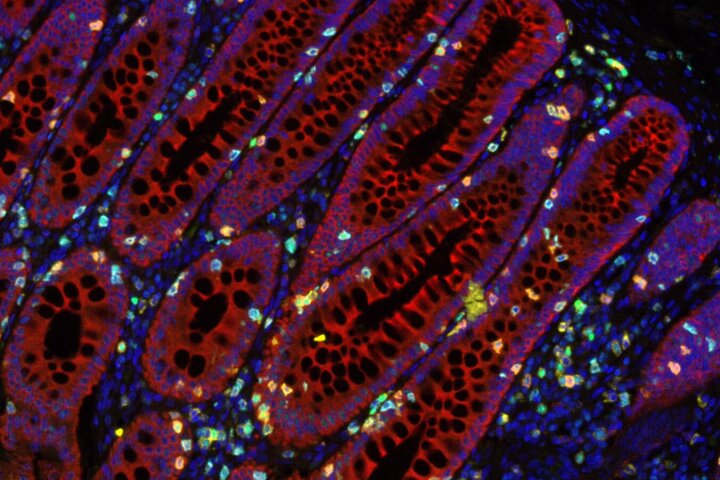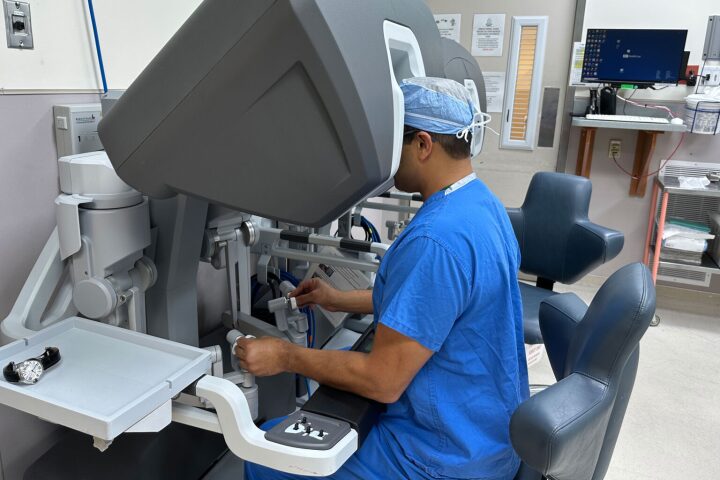Surgery
-
A study has found that placing older adults in a simulated high-altitude environment for a week before major surgery greatly improved their hemoglobin levels, addressing a common preoperative problem, anemia, that can lead to surgical complications.
-
In a stomach-churning development, the UK Ministry of Defence has unveiled the latest version of the Surgical Advanced Mannequin (SAM) for training combat surgeons, which is almost too good at simulating battle injuries, including very realistic bleeding.
-
Researchers have developed a scalpel with built-in force-measuring sensors and coupled it with a machine-learning model that could streamline how doctors are trained to perform surgery and pave the way for automated surgical devices.
-
Each year, more than 150,000 Americans are diagnosed with bowel cancer, or colorectal cancer, and the disease has a dire survival rate if surgery isn’t successful. Scientists now believe they have found one tiny molecule that could change all that.
-
Researchers have developed an AI model that can predict in real-time whether a surgeon has removed all cancerous tissue during breast cancer surgery. The model performed as well as, or better than, human doctors.
-
A 58-year-old man with terminal heart disease has become the second patient to receive a pig's heart, in a complicated, high-risk xenotransplant. The first recipient died last year from complications, two months after the landmark world-first surgery.
-
It's normal to feel anxious about going under the knife, but stress before surgery can range from mild anxiety to overwhelming fear. Now, researchers believe a tech more often seen in video games – augmented reality – can help relieve that anxiety.
-
In another encouraging step toward relieving transplant organ shortages, surgeons at NYU Langone Health have kept a genetically engineered pig kidney alive and fully functioning inside a brain-dead patient for over a month for the first time.
-
Clinical trials of a novel non-opioid analgesic have found it to be effective in reducing acute postoperative pain, opening the door to a new way of managing short-term pain that avoids the pitfalls associated with using opioids.
-
Rebuilding knees with kangaroo tissue is one step, or hop, closer to being a reality, with human trials set to get under way in 2024. Their tendons are six times stronger than our own and are more sustainable and durable than current surgery options.
-
In an exciting step forward in surgery advances, the first successful liver transplant performed by a robot has taken place in the US, offering minimal invasiveness and speedy recovery time. Clinics now plan to ramp up wider use of this innovative tech.
-
A 31-year-old woman desperately needed a heart transplant to save her life, but doctors knew her body would reject the organ. So they took an unusual approach: they also replaced her healthy liver. The procedure was a groundbreaking success.
Load More











